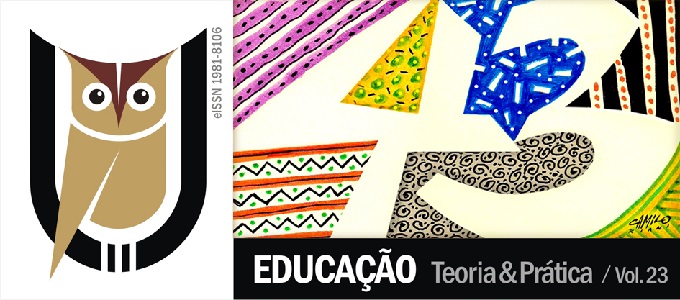Social Representations and Focus Group: a study on the assessment of learning in distance education.
DOI:
https://doi.org/10.18675/1981-8106.vol23.n43.p145-168Keywords:
Evaluation. Distance Education. Social Representations. Focus GroupAbstract
This article derives partially from a theoretical-methodological research, carried out with the support of Social Representations Theory. It focuses specifically on discussions and reflections on learning assessment in distance education. The data were collected from focus groups, gathered from graduating students of Pedagogy of two poles of an Educational Institution, Cariacica and Colatina poles, in the State of Espírito Santo. The objective was to identify the social representations which the graduating students of Pedagogy in distance education built about the assessment of learning. The data analysis identified three key words: contradictions, rituals and perceptions which were translated into three unities of meaning. These unities are associated with the social representations, built by those students. From their experiences, speeches, pictures and viewpoints, they organized and transformed their representations into feelings which denote that assessment is primordial and necessary for learning in the course; yet at the same time, they met contradictions, between what is taught in theory, and what is experienced in practice, what leads them to fight for a more humane evaluation process.Downloads
Additional Files
Published
How to Cite
Issue
Section
License
Authors who publish in this journal agree to the following terms:
a) Authors assign copyright to the journal, with the work simultaneously licensed under the Creative Commons Attribution License that allows sharing of the work with acknowledgment of authorship and publication in this journal.
b) The policy adopted by the Editorial Committee is to assign copyright only after a period of 30 months from the date of publication of the article. After this time, authors interested in publishing the same text in another work must send a letter to the Editorial Committee requesting the release of the assignment of copyright and wait for a response.
c) This journal provides public access to all its content, since this allows greater visibility and reach of published articles and reviews. For more information on this approach, visit the Public Knowledge Project, a project that developed this system to improve the academic and public quality of research, by distributing OJS as well as other software to support the public access publication system to academic sources. The names and email addresses on this website will be used exclusively for the purposes of the journal and will not be available for other purposes. This journal provides open any other party  This work is licensed under a Creative Commons License
This work is licensed under a Creative Commons License











